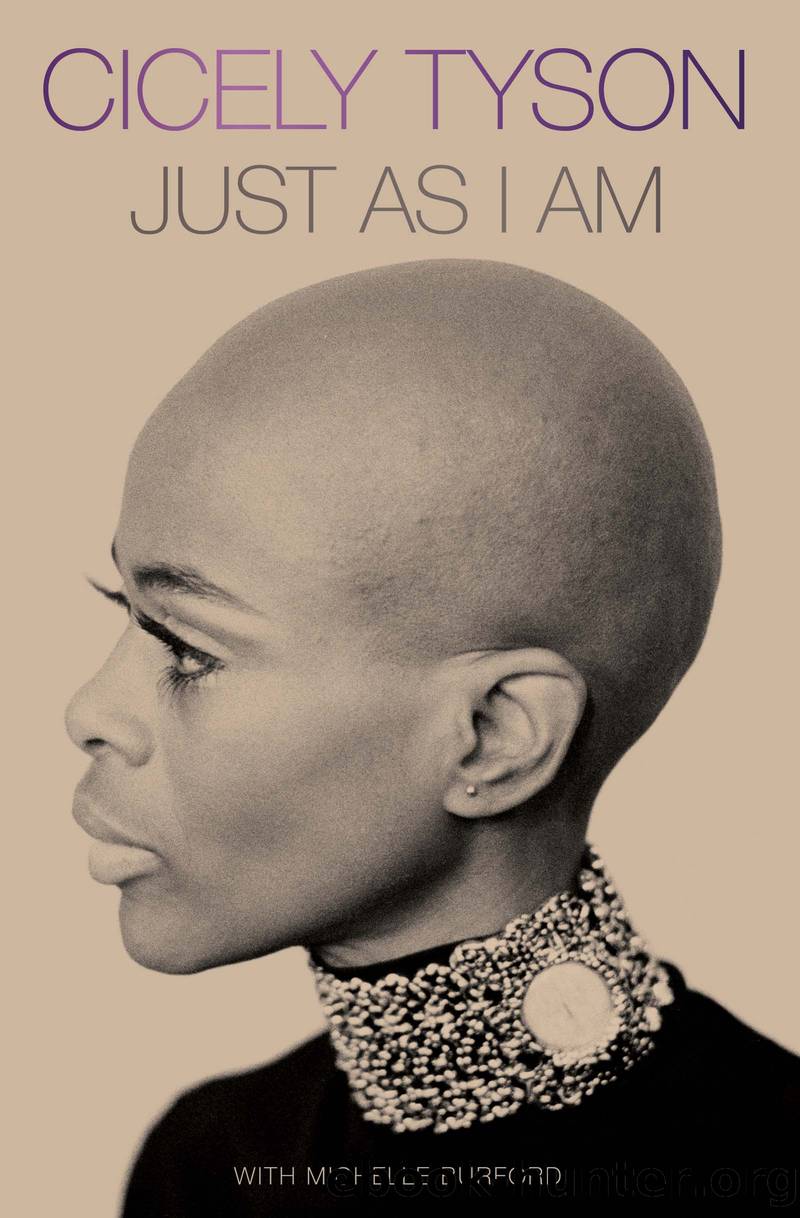Just as I Am by Cicely Tyson

Author:Cicely Tyson
Language: eng
Format: epub
Publisher: HarperCollins Publishers
Published: 2020-12-12T00:00:00+00:00
14
Rebecca
MY WORK on Sounder began with a prediction. In the spring of 1971, I was set to fly out to Los Angeles to start work on the film, and as was true with every important moment in my life, I wanted to share this one with Arthur. Heâd been overseas on tour with his students, and we hadnât yet connected about my role. So on my way to the airport, I stopped by his place to give him my good news in person. âIâm going out to Hollywood to do my first big movie,â I said, joy lifting my cheeks.
âAnd if you do,â Arthur said, âyouâre going to be nominated for an Oscar.â
âAnd if I am,â I told him, âyou will be my escort.â We hugged and I went on my way.
Even before filming began, skepticism abounded over whether Sounder would resonate. The short three-year gap between Dr. Kingâs assassination in 1968 and our first day on set in 1971 felt more like a decade. Throughout the sixties, thereâd been a major political shift among young Blacks in particular, some of whom were weary with Kingâs passive resistance and favored forceful rebellion. The change became more pronounced after we lost Kingâand movies began mirroring the evolving times. Theatergoers longed for brazen Black characters, heroes willing to take up arms in battling racial violence, in place of conciliatory Negroes serving as white Americaâs moral conscience. This new spirit was, in part, what gave rise to Blaxploitation cinema, the genre that, as I see it, did more to impede our progress than to fuel it. In such an environment, director Marty Ritt made the brave choice to feature a loving Black family in a plot that neither satisfied the thirst for Black rebel characters nor reinforced the stereotype of us as heathenish villains. It was bold. It raised eyebrows and doubts. And even Paul Winfield and I, the principal actors, wondered whether anyone would show up to see the film.
First things first: The story of Sounder may have been stolen from a Black man. William H. Armstrong is said to have penned the 1969 childrenâs book upon which the film is based, and he even won the Newbery Medal for it. But while preparing for the film, a young Black author I met insisted heâd written the story during the years he worked for Armstrong. He even gave me a signed copy of his original draft, and it breaks my heart that I no longer have it and cannot track down the manâs name. I loaned his draft to Lonne Elder and never got it back. The same thing happened, years later, when I began work on A Woman Called Moses. Harriet Tubmanâs nephew gave me a book of hers, and poof, it disappeared.
From the scriptâs opening line, Rebecca crawled under my skin. I could see her, feel her, touch her. Though, as Iâve told you, Iâd initially been asked to play the teacherâa smaller role, but a no less beautiful oneânothing in me stirred when I read that part.
Download
This site does not store any files on its server. We only index and link to content provided by other sites. Please contact the content providers to delete copyright contents if any and email us, we'll remove relevant links or contents immediately.
Melania and Me by Stephanie Winston Wolkoff(880)
Live in Love by Lauren Akins & Mark Dagostino(830)
The Class of 83 by Hussain Zaidi(809)
Dancing in the Mosque by Homeira Qaderi(756)
A History of My Brief Body by Billy-Ray Belcourt(742)
Stranger Care by Sarah Sentilles(605)
Just as I Am by Cicely Tyson(604)
The Schoolgirl Strangler by Katherine Kovacic(580)
Unforgetting by Roberto Lovato(577)
Broken Horses by Brandi Carlile(574)
Berlin Diary: The Journal of a Foreign Correspondent 1934-41 by William L. Shirer & Gordon A. Craig(548)
Paris Without Her: A Memoir by Gregory Curtis(548)
Harriet Tubman: The Biography by University Press(542)
Robespierre: A Revolutionary Life by Peter McPhee(536)
1914 by Luciano Canfora(534)
Ariel (english and spanish Text) by Sylvia Plath(522)
One Life by Megan Rapinoe & Emma Brockes(520)
Black Mass by Dick Lehr & Gerard O'Neill(490)
Playboy Laughs by Farmer Patty;(481)
